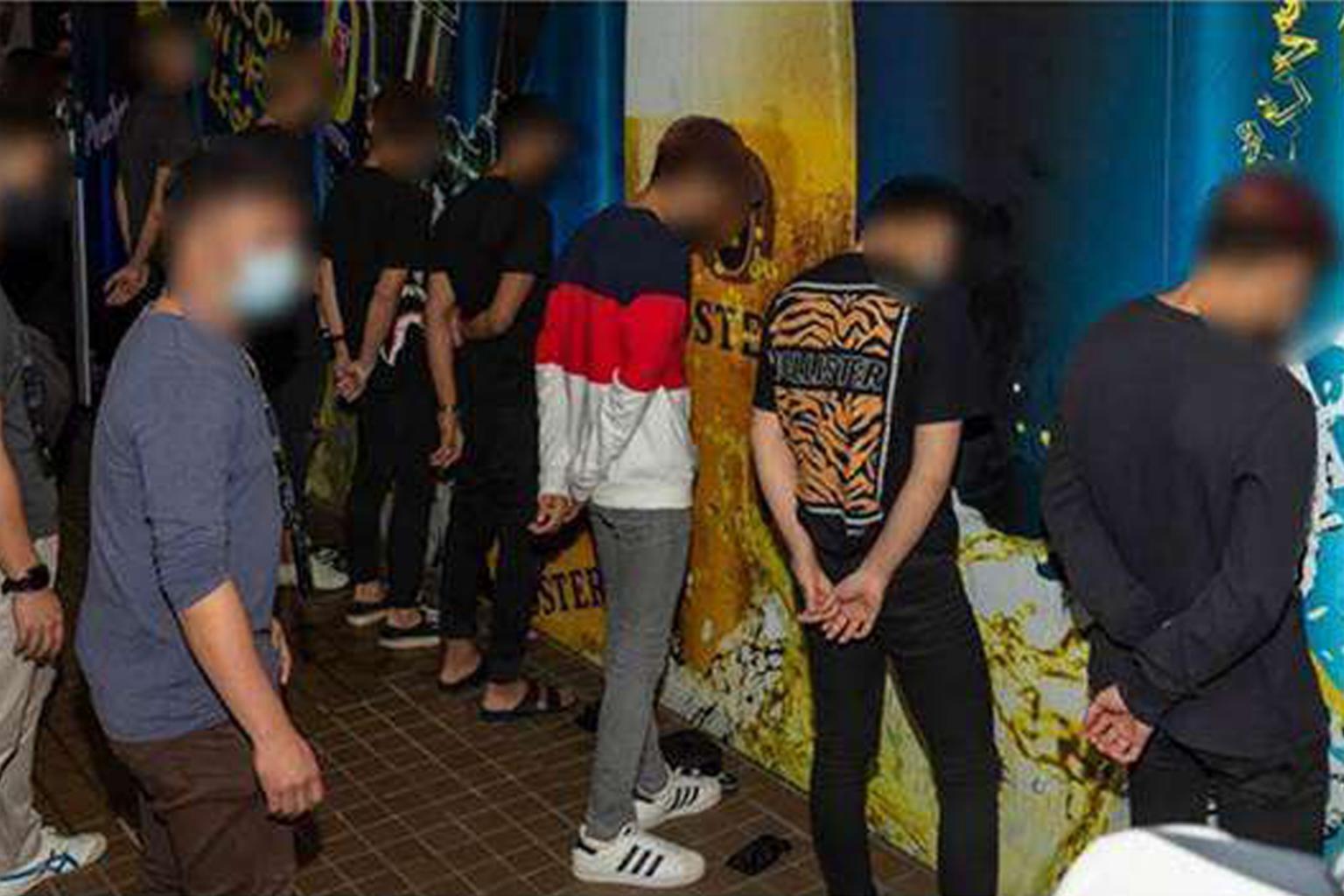Secret society situation in Singapore under control: Shanmugam
Sign up now: Get ST's newsletters delivered to your inbox

The operation that swept up the 151 alleged gang members was part of continuous anti-gang suppression and deterrence efforts by the police.
PHOTO: SINGAPORE POLICE FORCE
SINGAPORE - An average of 112 rioting and serious hurt cases have been linked to secret societies in Singapore each year for the past five years and cases involving the use of weapons such as parangs and knuckle dusters have declined over the same period.
There was one case involving weapons last year, down from 12 in 2016, Home Affairs and Law Minister K. Shanmugam said in a written parliamentary reply on Tuesday (Feb 2).
Providing these figures, Mr Shanmugam said that the secret society situation in Singapore is under control.
He was responding to Mr Murali Pillai (Bukit Batok) and Mr Melvin Yong (Radin Mas), who asked about recent trends in gang-related activities following the arrests of 151 people allegedly linked to unlawful societies.
The operation that swept up the 151 alleged gang members between Dec 21 and Jan 3 was part of continuous anti-gang suppression and deterrence efforts by the police, said Mr Shanmugam.
The arrests followed a number of rioting cases in December last year, some of which occurred near entertainment outlets in the city and led to serious injuries.
Mr Shanmugam said secret societies now are largely made up of loosely-organised street gangs and mainly comprise younger members who flit between different groups.
While the number of youths dealt with by the police for secret society-related offences has remained stable in the last five years - with an average of 153 per year - youth gangs remain a serious concern.
The police invest significant resources to educate and engage youths to deter them from joining secret societies, Mr Shanmugam said, citing regular anti-gang talks held in secondary schools. The police also work with the Ministry of Social and Family Development, the Ministry of Education and volunteer welfare organisations to rehabilitate at-risk youths before they become entrenched in the gang mindset.
Against the backdrop of Covid-19 restrictions, which has limited such activities, the police are now looking to enhance their anti-gang outreach efforts online, Mr Shanmugam added.
For example, the police and National Crime Prevention Council organised an online football video game tournament last year for more than 100 youths, who also received anti-gang talks and crime prevention advice as part of the competition.
The police had previously said that the number of arrests for gang-related activities has generally declined over the last decade, from about 1,000 per year in 2012 and 2013 to about 700 per year in 2018 and 2019.
Last year's figure was significantly lower due to Covid-19 movement restrictions.


